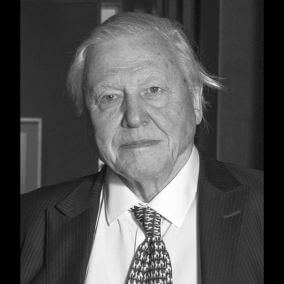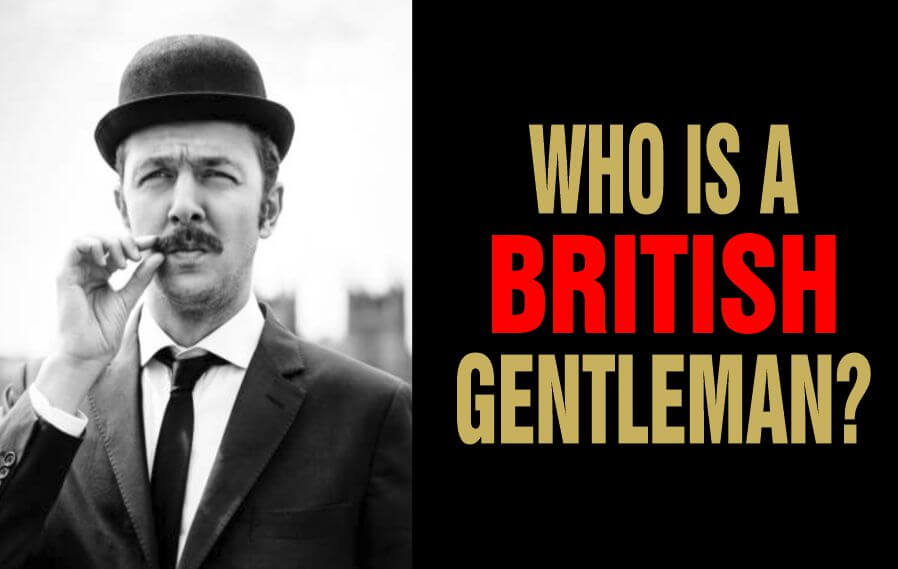A British gentleman interchanged with an English gentleman is a term that describes a polished gentleman from the United Kingdom with impeccable politeness.
It is a concept rooted in history, reflecting the traditions and customs of the British upper class.
He is characterized by his politeness, respect, and adherence to proper etiquette. He is known for his impeccable style, whether in dress or speech.
With a deep sense of integrity and dignity, a British gentleman exhibits a certain charm and sophistication that is admired and sought after.
In this post, we will discuss what makes a British gentleman, his challenges, and its significance today and we will be interchanging him with the English gentleman.
You will want to read the explosive introduction to the true gentleman.
Table of Contents
- Definition of a British Gentleman and the English Gentleman
- Historical Background of the British Gentleman
- Modern Perceptions and Interpretations of the British Gentleman
- Key Traits and Characteristics of a British Gentleman
- Challenges and Criticisms of the British Gentleman
- British Gentleman Icons and their Impacts on Society
- The Importance of Being a Gentleman Today
- Conclusion
- Frequently Asked Questions
Go ahead and pin the image below.

Definition of a British Gentleman and the English Gentleman
The terms “British gentleman” and “English Gentleman” refer to individuals from the United Kingdom who mirror traditional ideals of courtesy, sophistication, and manners.
However, there are subtle differences between the two.
A British gentleman is an individual who reflects the spirit of the entire United Kingdom, which includes England, Scotland, Wales, and Northern Ireland.
This term covers a wider cultural aspect, indicating a gentleman of British heritage and values, with an appreciation for the diverse customs and traditions of the entire nation.
He is often associated with a cosmopolitan lifestyle, embracing influences from different regions within the UK.
On the other hand, an English Gentleman specifically refers to someone who embodies the ideals and characteristics associated with English culture and society.
Related: How Do You Identify a True Gentleman?
This term is more focused on England’s customs, traditions, and mannerisms.
An English Gentleman is often associated with a quintessentially British charm, along with a keen interest in literature, history, and the finer things in life.
While the terms overlap, the distinction lies in the broader representation of a British gentleman compared to the more specific reference of an English Gentleman.
Both terms emphasize virtues such as politeness, integrity, and respect, but the British gentleman reflects a wider range of cultural influences, while the English Gentleman represents the essence of Englishness.
Ultimately, both terms symbolize the ideal of a refined and well-mannered individual, showcasing the best of British culture and heritage.
Historical Background of the British Gentleman
The historical background of British Gentlemen can be traced back to medieval times, although the concept has evolved over the centuries.
In medieval England, the term “gentleman” initially referred to someone of noble birth or someone who held a high social rank.
It was closely associated with the knightly class and feudal society.
Origins and Evolution of the Term “Gentleman” In Britain
During the Renaissance period, the term “gentleman” began to be associated with certain social qualities and behaviours rather than strictly with noble birth.
It became a mark of distinction and was linked to an individual’s moral, intellectual, and cultural refinement.
Social classes and the aristocracy played a significant role in defining who could be considered a gentleman in British society.
In the 18th and 19th centuries, the upper classes held power and wealth, and thus, they set the standards for gentility.
Also Read: Who is a Gentleman’s Gentleman?
The aristocracy, in particular, shaped the expectations and behaviours associated with being a gentleman.
To be recognized as a gentleman, one often required a certain level of education and refinement.
This meant being well-versed in literature, history, and the arts. A gentleman was also expected to have an understanding of social customs, manners, and etiquette.
The aristocracy, as the social elite, set the example for these traits and influenced the cultural norms of the time.
Modern Perceptions and Interpretations of the British Gentleman

Modern perceptions and interpretations of the classy gentleman of Britain have evolved in response to changing societal norms, the influence of media and popular culture, and contrasting views and debates on what it means to be a gentleman today.
Related: Compassion and Empathy: Core Gentleman Values
Changing Societal Norms and their Impact on the Definition of a Gentleman
Societal norms have significantly changed over time, impacting the definition of a gentleman.
Traditionally, a gentleman was expected to personify qualities such as chivalry, honour, politeness, and adherence to social etiquette.
However, as gender roles and expectations have shifted, the idea of a gentleman has become more fluid.
Today, being a gentleman is less about rigid adherence to a specific set of rules and more about treating others with respect and equality, regardless of gender, race, or socioeconomic background.
The Influence of Media and Popular Culture in Shaping Public Perception
Media and popular culture play a remarkable role in shaping public perception of the English gentleman.
Films, television shows, and literature often portray gentlemen as stylish, charming, intelligent, and well-mannered individuals.
Examples of characters such as James Bond or the refined protagonists in period dramas contribute to a modern perception of the British gentleman.
However, it is essential to recognize that these portrayals may be idealized or exaggerated, and not necessarily reflective of real-life gentlemen.
Related: Challenges Every Gentleman Face
Contrasting Views and Debates on What it Means to be a Gentleman Today
There are contrasting views and debates on what it means to be a gentleman in contemporary society.
Some argue that the concept of a gentleman is outdated and perpetuates patriarchal or elitist ideals.
They believe that promoting gender-neutral behaviours and focusing on qualities such as empathy and emotional intelligence are more relevant in today’s world.
Others maintain that being a gentleman represents timeless values like integrity, kindness, and respect.
These debates highlight the tension between tradition and progress and the evolving definitions and expectations of what it means to be a gentleman today.
Key Traits and Characteristics of a British Gentleman
The English gentleman has some distinguishable characteristics which are not too different from the general traits of the general gentleman.
Let’s examine them in detail.
1. Politeness, Courtesy, and Respectfulness
One of the key traits of an English gentleman is their emphasis on politeness, courtesy, and respectfulness towards others.
They are known for their impeccable manners, polite conversation, and respectful behaviour towards people of all backgrounds.
Opening doors for others, using proper manners, offering assistance when needed, and addressing people formally are some common examples of the British gentleman’s commitment to this trait.
2. Dressing and Grooming with Style and Elegance
The English gentleman prides himself on his sense of style and elegance in his dressing and grooming.
He pays attention to his appearance and believes in dressing appropriately for every occasion.
Whether it is a formal event or a casual gathering, he aspires to dress well, often opting for well-tailored suits, polished shoes, and classic accessories.
Attention to grooming, such as a well-groomed haircut and grooming habits, is also an important aspect of his style.
Related: How to Express Gentlemanliness in Different Situations
3. Cultivating Timeless Values Like Integrity, Honour, and Humility
English gentleman value timeless values such as integrity, honour, and humility.
He believes in doing what is right without compromising his values.
He strives to maintain his integrity in all aspects of life, be it personal or professional.
Honouring commitments, practicing honesty, and showing humility in his interactions are qualities he holds dear and serve as a guiding principle in his conduct.
4. Valuing Education, Knowledge, and Intellectual Pursuits
Intellectual pursuits and the pursuit of knowledge are highly valued by the classy gentleman of Britain.
He places importance on education and continuous learning throughout his life.
Engaging in intellectual conversations, reading literature, and staying updated with current events are common habits.
Also, the English gentleman often seeks knowledge in various subjects and will actively participate in discussions or debates to broaden their understanding of the world.
Challenges and Criticisms of the British Gentleman
The English gentleman has been an iconic figure for centuries, reflecting ideals of refinement, chivalry, and honour.
However, this portrayal has faced challenges and criticisms.
Firstly, it has been accused of perpetuating a class-based society, reinforcing elitism, and excluding those without privileged backgrounds.
The concept of the gentleman has also been seen as promoting traditional gender roles and limiting opportunities for women.
Moreover, critics argue that the image of the gentleman often masks underlying issues of colonialism and imperialism, glossing over historical injustices.
Related: Who is a Country Gentleman?
Additionally, some perceive the gentlemanly code as overly rigid and restrictive, suppressing individuality and authentic expression.
Finally, the idea of the classy gentleman of Britain has been questioned for its potential to create an illusion of superiority, promoting arrogance and an unwillingness to adapt.
Despite its enduring allure, the notion of the English gentleman is not without its complexities and critiques.
British Gentleman Icons and their Impacts on Society
British gentleman icons are individuals from British history and culture who have come to embody the quintessential traits associated with a gentleman.
They often demonstrate refined manners, intellectual pursuits, and a high taste of style and elegance.
Some iconic figures who represent British gentlemanly traits include:
Sean Connery

Sean Connery, the iconic actor, and the original James Bond, reflected the essence of an English gentleman with his suave demeanor and effortless charm.
His portrayal of 007 in the early Bond films solidified the image of a sophisticated, confident, and intelligent spy, adored by audiences worldwide.
Beyond the silver screen, Connery’s charisma and class extended to his public persona, displaying an air of dignity and grace.
His contribution to British culture and global pop culture elevated him to the status of a legendary English gentleman, leaving an indelible mark on cinema and the portrayal of sophisticated masculinity.
Related: Qualities Every Gentleman Should Exude
David Beckham

David Beckham, the renowned former footballer, shines in the cloak of a British gentleman with his exceptional sportsmanship and stylish persona.
Known for his impeccable fashion sense, philanthropy, and humility, Beckham exudes charm and grace both on and off the field.
As a global icon, he represents refined masculinity and has used his fame to promote various charitable causes.
His conduct, charisma, and dedication to family and community make him an enduring symbol of a modern-day English gentleman, admired and respected by people from all walks of life.
Sir Christopher Lee

Sir Christopher Lee, the late actor in iconic roles like Dracula and Saruman, displayed the essence of a British gentleman with his distinctive presence and refined talent.
Known for his deep, commanding voice and dignified demeanor, Lee exuded a sense of sophistication and intellect.
Beyond his illustrious acting career, he displayed a deep love for the arts, literature, and music.
His military service during World War II further exemplified his sense of duty and honour.
With a career spanning over seven decades, Sir Christopher Lee remains an enduring symbol of British elegance and cinematic excellence, earning admiration and respect worldwide.
Sir Patrick Stewart

Sir Patrick Stewart, the acclaimed actor known for his roles in Star Trek and Shakespearean productions, personifies the quintessential British gentleman.
With his eloquence, poise, and intellectual depth, he exemplifies dignity and integrity on and off the stage.
Stewart’s portrayal of Captain Jean-Luc Picard in Star Trek exemplifies a compassionate and wise leader, garnering admiration from fans worldwide.
Additionally, his commitment to the arts and social causes, including domestic violence and LGBTQ+ rights, reflects his sense of responsibility and empathy.
Through his illustrious career and philanthropic endeavors, Sir Patrick Stewart remains a cherished symbol of British sophistication, talent, and compassion.
Sir Elton John

Sir Elton John, the legendary musician, is a face the British gentleman with his exceptional talent, flamboyant style, and philanthropic endeavors.
His iconic music and mesmerizing performances showcase his artistic brilliance and passion.
Beyond his musical achievements, Elton John’s charitable work, especially in the fight against HIV/AIDS, demonstrates his compassion and sense of social responsibility.
Despite his fame and success, he maintains a down-to-earth and gracious demeanor, earning respect and admiration from fans and peers alike.
As a global icon, Sir Elton John represents the epitome of British creativity, generosity, and gentlemanly charm, leaving an indelible legacy in the world of music and philanthropy.
Sir David Attenborough

Sir David Attenborough, the esteemed broadcaster and natural historian, is a true example of a classy gentleman of Britain with his unwavering dedication to the natural world and his exceptional storytelling abilities.
His iconic voice and insightful narration have brought the wonders of nature into the homes of millions worldwide, inspiring a deeper appreciation for the environment.
As an advocate for conservation and environmental issues, Attenborough’s passion and knowledge reflect his sense of duty and responsibility to protect the planet.
With humility and grace, he has become a revered symbol of British intellect, curiosity, and compassion, leaving an enduring impact on both science communication and conservation efforts.
Sir Ian McKellen

Sir Ian McKellen, the distinguished actor, exemplifies the classy gentleman of Britain with his extraordinary talent, profound intellect, and dedication to the arts.
Renowned for his iconic Shakespearean performances and memorable roles like Gandalf in “The Lord of the Rings” trilogy, McKellen’s stage and screen presence exudes charisma and grace.
His advocacy for LGBTQ+ rights and charitable contributions reflect his compassion and sense of social responsibility.
With a career spanning decade, Sir Ian McKellen remains a cherished symbol of British sophistication and artistic brilliance, captivating audiences with his performances and inspiring generations with his advocacy and humanitarian efforts.
British Gentleman Icons are leaving a lasting impact on society through their contributions and embodiment of gentlemanly traits.
Their influence extends beyond their respective fields, shaping perceptions of British values, sophistication, and leadership on a global scale.
Related: The Hobbies of the Country Gentleman
The Importance of Being a Gentleman Today
The concept of the English Gentleman has evolved over the years, but it still holds relevance in today’s society.
An English gentleman is timeless and universally appreciated, regardless of cultural differences.
In an increasingly diverse and interconnected world, the classy gentleman of Britain can serve as a role model for individuals to navigate social interactions and uphold a sense of decency.
Treating others with respect and kindness can help build positive relationships and a harmonious society.
Moreover, the British Gentleman’s emphasis on education and intellectual pursuits remains relevant today.
Continuous learning and self-improvement are crucial in an era where knowledge is constantly evolving.
The image of an English Gentleman exemplifies sophistication and a commitment to personal growth, inspiring individuals to expand their horizons.
Additionally, sense of style and good grooming has enduring appeal.
The importance placed on presentation and attention to detail can contribute to one’s self-confidence and make a positive impression in personal and professional settings.
Conclusion
The British gentleman and the English gentleman are cultural archetypes that have shaped perceptions of British identity for centuries.
Rooted in historical context and evolving social norms, these figures represent ideals of refinement, chivalry, and honour.
While the term “gentleman” originated from the upper classes, it has expanded its meaning to encompass individuals of any background who exhibit qualities of decency, kindness, and respect.
Both the classy gentleman of Britain and the English gentleman share common traits, such as politeness, integrity, and empathy, serving as role models for conduct and behaviour.
However, it is essential to recognize that these archetypes can be limiting when associated with rigid gender roles or class distinctions.
A modern understanding of a gentleman should embrace inclusivity, acknowledging the diversity of British society and promoting egalitarian values.
Frequently Asked Questions
Who is considered a British gentleman?
He is typically associated with a man who embodies traditional values of politeness, courtesy, and refined manners, often displaying a sense of sophistication and adherence to social etiquette.
Does being a British gentleman require a specific background or social status?
No, being one is not limited to a specific background or social status. It is more about embodying certain values and behaviors rather than one’s birth or social standing.
What are some characteristics of a British gentleman?
The characteristics may include good manners, respect for others, a sense of integrity, politeness, a love for tradition, a refined sense of style, and an appreciation for cultural pursuits.
Is the concept of a British gentleman outdated in modern society?
While societal norms have evolved, the concept of a British gentleman still holds value in modern society. It represents timeless qualities of respect, courtesy, and integrity that can be appreciated and practiced by individuals today.
Can someone from outside of Britain be considered a British gentleman?
Yes, the term “British gentleman” refers more to the embodiment of certain values and behaviours rather than nationality. Anyone, regardless of their origin, can adopt and embody the qualities associated with being a British gentleman.
What are the rules of an English gentleman?
The “rules” of an English gentleman are not strict guidelines, but rather a set of principles and values that have been historically associated with gentlemanly conduct. Some common “rules” include:
- Showing respect and consideration for others.
- Being polite, courteous, and well-mannered.
- Acting with integrity and honesty.
- Being a good listener and showing empathy towards others.
- Upholding a sense of honour and keeping one’s word.
- Dressing appropriately for different occasions.
- Displaying self-confidence without arrogance.
- Being well-educated and informed about various topics.
It is important to note that these rules are not rigid, and the concept of a gentleman has evolved over time.
Today, the emphasis is on inclusivity, understanding, and treating others with kindness and equality.
References:
https://tvtropes.org/pmwiki/pmwiki.php/Main/QuintessentialBritishGentleman
https://www.theguardian.com/theguardian/1999/jun/14/features11.g21
Pyo Merez is a men’s lifestyle enthusiast and writer about the gentleman’s place and impact on society. Raised by a distinguished gentleman dad, he offers unique insights into how the mind of a gentleman works and how societal norms shape gentlemen’s identity and vice versa.
Through his insightful articles, Pyo taps into the depths of gentleman culture to provide perspectives on etiquette and manners in modern society.

